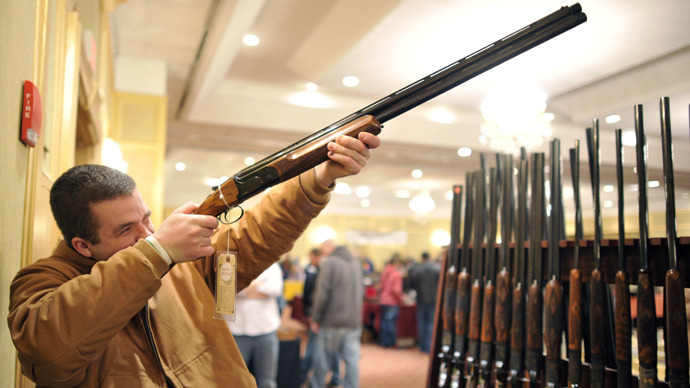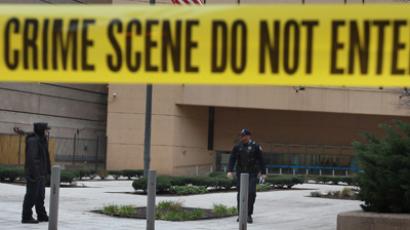South Dakota approves guns in the classroom

Lawmakers in South Dakota have passed a bill that would allow school districts to arm staff and teachers with guns to make their schools “safer”.
State Senators on Wednesday voted 21-14 to pass the measure, despite large-scale opposition from school administrators and personnel, who are largely opposed to bringing weapons into their schools.
Supporters of the bill claim that arming teachers could prevent tragedies like the Dec. 14 massacre in Newtown, Conn. The bill’s sponsor, Sen. Craig Tieszen, R-Rapid City, said that he would leave the decision to arm teachers up to individual school districts, but that he strongly recommends it.
When Craig advocated for the measure earlier this year, he said that having gun-free schools would simply make them more vulnerable and invite potential mass murderers.
“The possibility of an armed presence in any of our schools is a deterrent,” Craig told Fox News, claiming that no shooter would attack a school whose teachers are armed.
Supporters of the bill also argue that teachers would only become armed after partaking in a “School Sentinel program” that would provide them with firearms training by law enforcement officers. No teachers would be forced to take part in the program and could choose to remain unarmed.
But opponents, including many teachers themselves, remain uncomfortable about the prospect of having dangerous firearms in schools. Rep. Troy Heinert, D-Mission, said teachers should not be employed to act as law enforcement officers and that arming them would make him uncomfortable about sending his child to kindergarten.
“Doesn’t this blur the line between a teacher and a law enforcement officer?” he told Fox News. “Do we want to tell our children the only way to be safe is to carry a gun?”
The South Dakota Education Association claims that guns should only be provided to trained professionals and that no training program could properly instruct a teacher how to respond to a situation like the massacre in Newtown, Conn.
“It’s one thing to have firearms training,” the group’s spokesperson, Sandra Waltman, told KTIV TV. “It’s a completely different thing to be trained on how to handle those very difficult circumstances if they should arise. We believe that students should be taught by professional teachers, and we think they should be protected by professional law enforcement.”
Some school officials and administrators have expressed their concern about gun-related accidents. Others say the weapons would distract from the purpose teachers serve in schools.
“It defects everything we’re trying to do with reading, writing and arithmetic, and getting the kids ready for society,” Dakota Valley Superintendent Al Leber told KTIV. “All we do, we spend hours and hours debating whether there should be a gun or shouldn’t be a gun in school.”
Despite the ongoing debate on such a sensitive matter, the legislature has passed the bill, leaving the decision to arm schools in the hands of the state’s individual school districts.
The vote comes days after an online national survey by the School Improvement Network found that 91.6 percent of teachers feel safe in their schools and 72.4 percent would most likely refuse to carry a firearm, even if it were allowed. The South Dakota bill goes against the wishes of the national majority, but legislators believe that the solution to gun violence is arming instructors and giving them to capability to protect their students.














